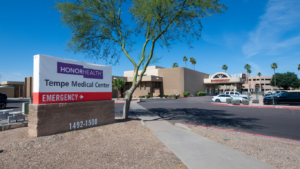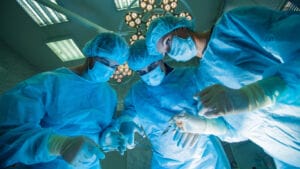Barnet Dulaney Perkins Eye Center is now offering the CentraSight treatment, the first-ever telescope implant surgical option for patients with end-stage age-related macular degeneration (AMD), the leading cause of blindness in older Americans.
More than 15 million Americans are affected by some form of macular degeneration – an attack of the macula of the eye, where one’s sharpest central vision occurs. The number of Americans afflicted with macular degeneration is expected to double with the rapid aging of the U.S. population.
End-stage AMD results in a loss of central vision, or blind spot, and is uncorrectable by glasses, drugs or cataract surgery. This blind spot makes it difficult or impossible for patients to see faces, read, and perform everyday activities such as watching TV, preparing meals and self-care.
CentraSight is the first treatment program to use a tiny telescope that is implanted inside the eye to treat end-stage AMD. Smaller than a pea, the telescope implant uses micro-optical technology to magnify objects that would normally be seen in one’s “straight ahead” vision or central vision. The images are projected onto the healthy portion of the retina not affected by the disease, making it possible for patients to see or discern the central vision object of interest.
The telescope implant improves a patient’s vision so that they can see the things that are important to them, increase their independence, and manage everyday activities again. The telescope implant is not a cure for end-stage AMD but offers a new hope to patients.
“The CentraSight treatment for age-related macular degeneration is revolutionary for eye health care,” said Mark Rosenberg, CEO of Barnet Dulaney Perkins Eye Center. “We are very proud to be one of the few to offer the telescope implant surgical option in the Valley.”




